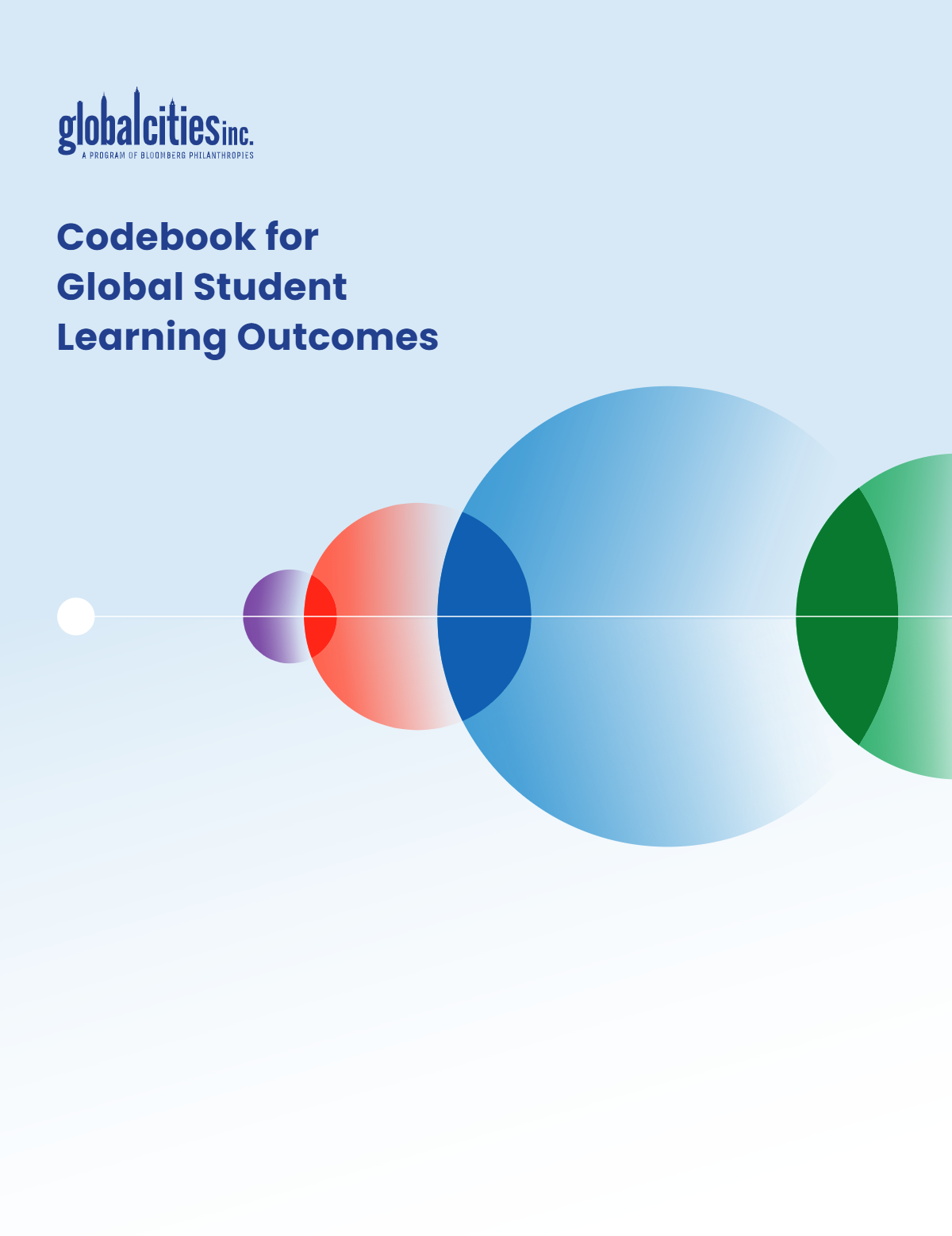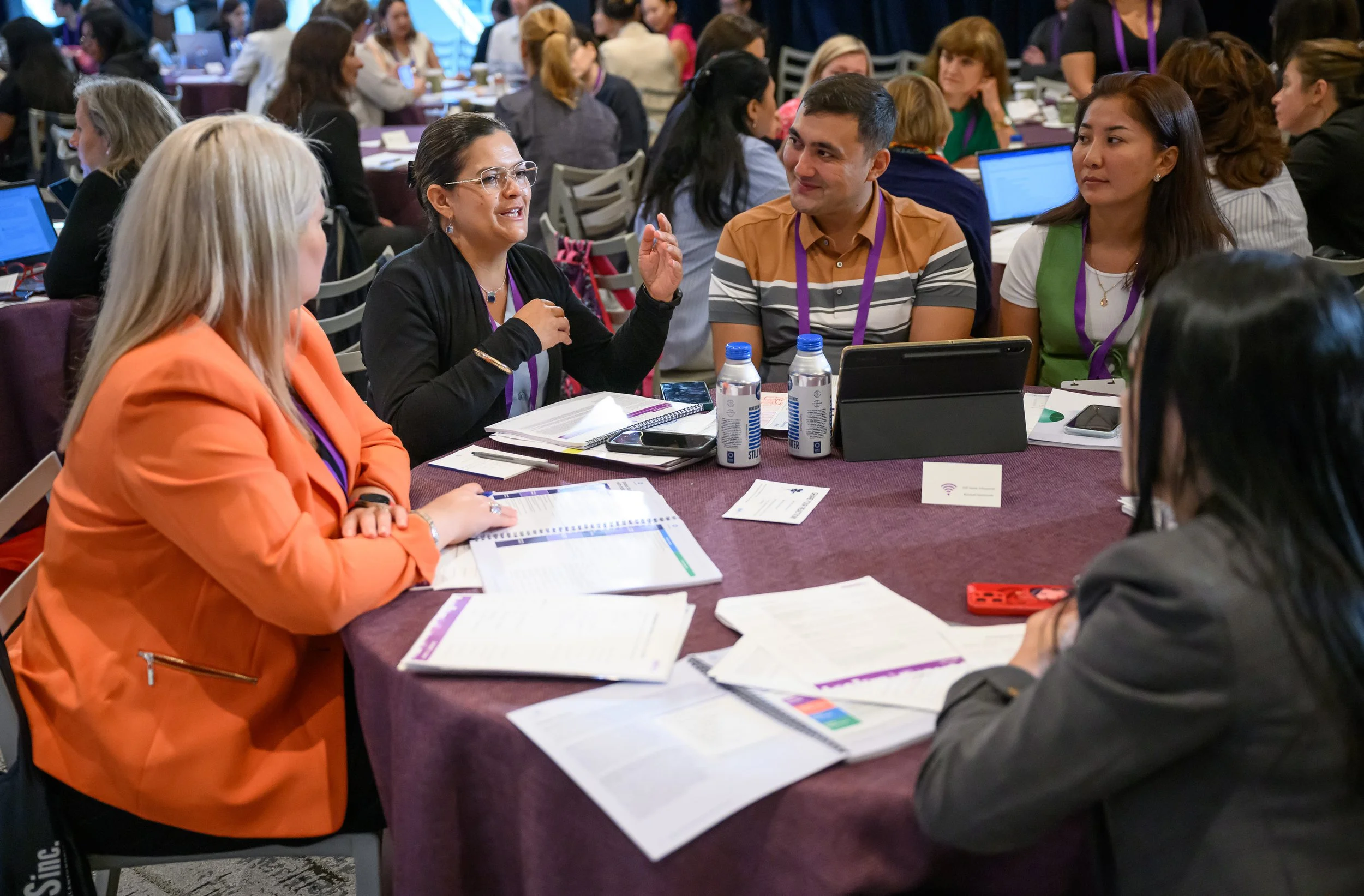Reimagining Teacher Professional Development:
A Global Cities Approach
Global competency can feel like yet another thing for teachers to incorporate into their instruction. But as our partnership with teachers in Madrid showed, it doesn’t have to be that way.
Great teaching and learning experiences have the power to ready students for a lifetime of global citizenship. Increasingly, school systems around the world seek to prepare young people for the globalized world that awaits them. But to be successful, teachers must be able to integrate global competence into their instruction, among many other academic demands on their time.
Global Cities, Inc., a program of Bloomberg Philanthropies, is reimagining teacher professional development (PD) to reflect the ways educators lead in modern classrooms. While many schools and districts strive for a global approach, they lack meaningful resources and tools to do so.
Too often, teacher PD proves neither relevant nor actionable, failing to recognize teachers’ expertise and limited time. What sets Global Cities apart from existing PD or frameworks is an emphasis on sustainable integration of global mindsets across all ages and courses, no matter where a classroom might be located. Rather than treating the global lens as a vague “add-on,” our courses explain how it can complement what most educators already do. Teachers leave our trainings inspired and ready to implement their learning right away.
A recent collaboration with the Ministry of Education in Madrid, Spain shows how the Global Cities approach to professional learning can be replicated in school systems around the world.
A Proven Approach and a New Partnership
In early 2025 Global Cities facilitated a virtual PD course, “Teaching Global Competency,” that was open to all K-12 Madrid teachers, across grades and subjects. The course was grounded in Global Cities’ rigorous research and decade of experience training educators around the world through our signature Global Scholars program.
“Global competency education is critical for the students of Madrid,” said Emilio Viciana Duro, Madrid Regional Minister of Education, Science and Universities. The Madrid Ministry of Education provided the infrastructure while Global Cities provided the content. The Ministry recruited more than 100 participating teachers, provided an online platform for hosting course materials, and offered PD credit to everyone who completed the course requirements. Global Cities facilitated the workshops, structured the activities, and reviewed assignments to provide coaching and feedback.
During the course, educators were taught to use Global Cities’ research-based tool, The Codebook for Global Student Learning Outcomes. The Codebook was developed in partnership with the Harvard Graduate School of Education’s The Open Canopy and is the foundation of all Global Cities trainings. It helps educators understand the knowledge, skills, attitudes, and behaviors that define global competency, and be able to incorporate them into everyday instruction so that they become part of the why, what, and how students learn. Through the Codebook, teachers develop a lasting approach to incorporating global competency instruction that they can bring with them into any classroom and apply to any content.
Empowering Educators
Participating Madrid teachers embarked on the 20-hour course over six weeks, blending live, collaborative workshops with asynchronous, online exchanges of ideas. This work was led by Global Cities staff, all former classroom teachers with experience designing instruction for a range of ages, content areas, and cultural contexts.
The course improved teachers’ ability to plan and lead learning activities that combined academic content alongside global learning outcomes. They analyzed student work samples for evidence of learning and reflected on the process of prioritizing, teaching, and measuring students’ global competency. “I learned that all of my course content can be aligned with these global learning outcomes and indicators,” one teacher said. “I try to do these connections everyday with my students, in an informal way, and I am very happy to have found this formal and organized method.”
The course also included interaction among teachers on discussion boards, where conversations ranged from how to incorporate environmental science into English lessons to ideas for prioritizing cultural understanding skills in lesson planning. Another teacher praised the PD’s actionable resources: “The fact that Global Cities provides us with tools to implement in a structured way has helped me better plan my lessons and to learn how to assess students’ global knowledge. In the future I will make good use of Global Cities’ indicators to include global competency learning in my classes.”
A Lasting Impact
At the end of the course, the teachers produced an instructional portfolio reflecting on a lesson they taught that blended academic content with a global competency indicator. For example, one secondary technology teacher’s portfolio focused on how robotics builds global knowledge and engagement through understanding how technology can address complex global issues. In a reflection, they wrote, “This content is not just to teach technical skills, it also prepares students to be global citizens.”
Paula Reyes, an official with the Madrid Ministry of Education, said “engagement during the Teaching Global Competency course was high.
Teachers appreciated the authenticity of the course and that it was student-centered.” One teacher described the realization that the theoretical content they taught could not be separated from global competencies. “Now I feel there is no other way to teach and to design my lessons,” they said. “Even if I used to prioritize global issues, I have changed radically with this workshop. I feel more confident and supported.” The Madrid partnership is a powerful example of how to prepare both students and teachers for an interconnected world in an accessible way.
Bringing “Teaching Global Competency” to Your School
The Teaching Global Competency course be embedded into existing PD programming, making it a sustainable and effective solution for education systems. Because the course is both virtual and interactive, it can be facilitated with any group of educators while also customized in real-time for specific contexts and questions. And given that the modules and asynchronous discussions take place over several weeks, allowing teachers to practice and reflect on their learning, the course is easier to implement than in-person or full-day PD options.
Global Cities’ teacher development courses represent a new path forward for global competency education that can be customized and replicated in cities around the globe, extending learning far beyond the classroom walls.
To learn more about the opportunity to train your faculty in research-based global competency instruction through this 20-hour, no-fee curriculum, please visit our Contact page.


